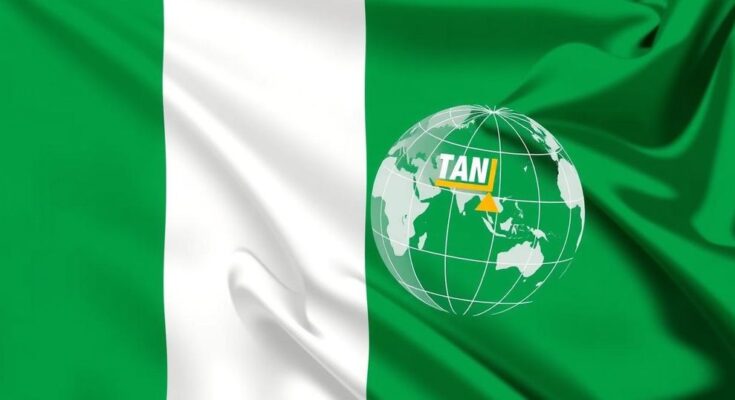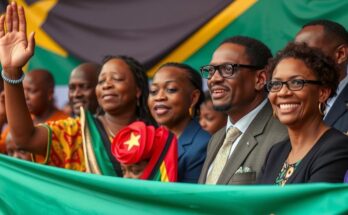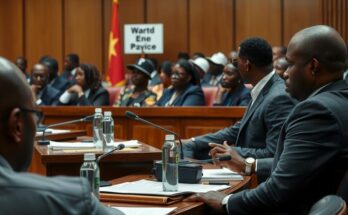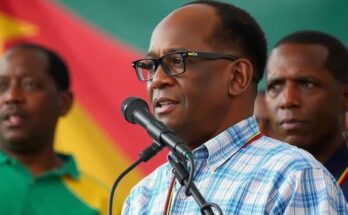Nigeria is leading global tax reform efforts, represented by Minister Tuggar at the G20 Summit, which emphasizes the need for a more equitable taxation system for developing countries. The nation’s commitment extends to tackling hunger and poverty while strengthening international agricultural collaborations. Nigeria’s growing influence in global discussions indicates its proactive stance in addressing both economic and social challenges.
Ambassador Yusuf Tuggar, the Minister of Foreign Affairs of Nigeria, has highlighted the nation’s significant role in global tax reform discussions, especially at the 19th G20 Leaders Summit held in Rio de Janeiro. He indicated that Nigeria championed a United Nations tax resolution, advocating for a reform that recognizes the inequities in the global taxation systems, which he argues currently benefit developed countries and disadvantage developing nations. Tuggar underscored the importance of this initiative stating, “This is something that Nigeria championed, and others have been echoing it, saying, look, we need to look at the global system of taxation.”
In addition to tax reform advocacy, Nigeria has expressed commitment to addressing hunger and poverty through the Global Alliance. Tuggar elaborated on Nigeria’s increased involvement in G20 activities, mentioning President Tinubu’s notable contributions during the summit and the nation’s upcoming participation in future G20-related dialogues, including a meeting in South Africa. He affirmed that the International Monetary Fund (IMF) recognized and appreciated the ongoing reforms under President Tinubu’s administration, which are focused on tackling pressing issues such as poverty and hunger.
Additionally, Tuggar articulated Nigeria’s historical significance as a leading voice in Africa, reflecting on the nation’s past contributions to the Global South and its continued efforts in areas like agricultural collaboration with Brazil. The ambassador mentioned agreements made to enhance agricultural yields through partnerships aimed at improving seed technology. He also indicated discussions around establishing direct air services between Nigeria and Brazil to facilitate better trade and interactions, stating, “It is not right that we have to fly all the way to Europe to get to this place when it is only an eight-hour flight.”
Finally, Tuggar pointed out that Nigeria is taking proactive steps in fostering economic cooperation and development through strategic agreements, including a noteworthy $5 billion off-take agreement for ethanol production involving the Niger government and a Brazilian company. These collaborations are expected to bolster local production capabilities while promoting sustainability and carbon credit earning opportunities.
As global economic dynamics evolve, the need for equitable tax reform has become increasingly pressing, particularly for developing nations. The G20, comprising the world’s major economies, serves as a platform for discussing international economic cooperation, making it vital for countries like Nigeria to assert their concerns regarding taxation and its impact on development. Minister Tuggar’s advocacy at the G20 summit illustrates Nigeria’s commitment to addressing these global challenges, drawing attention to structural inequalities that disadvantage developing nations in favor of wealthier counterparts. Moreover, Nigeria’s involvement in initiatives tackling hunger and poverty highlights its dedication to enhancing social welfare and economic stability within the region. The collaborative efforts with countries like Brazil signify an acknowledgment of the interconnected nature of global economies, emphasizing agriculture, technology transfer, and sustainable practices to foster growth.
In conclusion, Nigeria is actively championing global tax reform initiatives and addressing critical issues of hunger and poverty on the world stage, particularly through its engagement in the G20. Minister Tuggar’s comments reflect a broader commitment to not only transform the Nigerian economy but also enhance its position within the international community. The establishment of partnerships, technological advancements, and direct engagements underline Nigeria’s proactive approach in fostering development and cooperation with other nations, paving a path toward a more equitable global economic framework.
Original Source: nannews.ng




